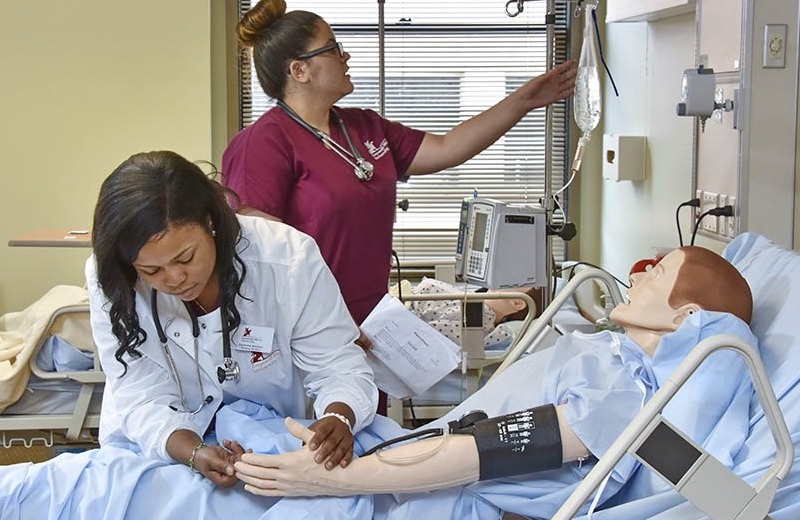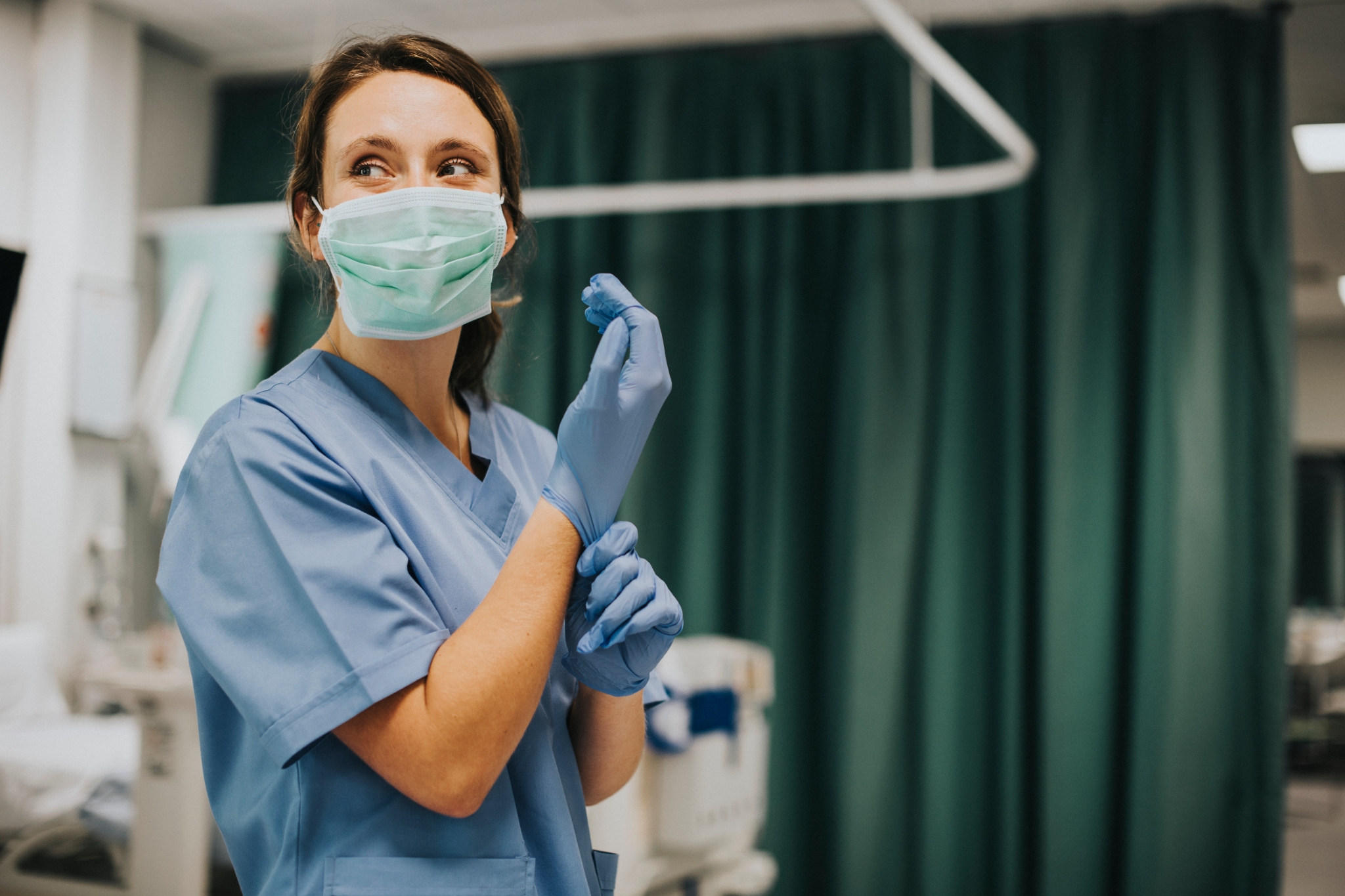Nurse Hannah - Understanding The Heart Of Care
Imagine a guiding presence, a steady hand, someone who brings a sense of calm when things feel uncertain. That, in a way, is what many people experience when they encounter a nurse. We often think of these caring individuals as simply providing medical help, yet their work goes much deeper than that. They are, you know, a vital part of what makes our health system function, offering comfort and knowledge when it's most needed.
A nurse, like someone we might call Nurse Hannah, for instance, does so much more than just follow instructions. They use a special blend of knowledge and genuine kindness to look after people who are not feeling their best. It's really about helping folks get back on their feet, keeping them well, and making sure they can live their lives to the fullest.
The job of a nurse, you see, involves a surprising variety of tasks and settings. From busy hospital wards to quiet community health centers, nurses are there, making a real difference. We're going to take a closer look at what it truly means to be a nurse, using the idea of someone like Nurse Hannah to show just how broad and important this calling actually is.
Table of Contents
- The Calling of a Caregiver - Who is Nurse Hannah?
- A Look at the Role Nurse Hannah Plays
- What Makes Someone Like Nurse Hannah So Important?
- How Does Nurse Hannah Help People Get Better?
- Where Might You Find Someone Like Nurse Hannah at Work?
- What Kinds of Paths Can Someone Like Nurse Hannah Choose?
- What Does It Take to Become Someone Like Nurse Hannah?
- Supporting the Work of Nurse Hannah
The Calling of a Caregiver - Who is Nurse Hannah?
When we think about someone like Nurse Hannah, we are really picturing a person who stands at the very heart of looking after others. At its core, the description of a nurse involves a health professional who puts their practical abilities to work, caring for those who need it. This isn't just about giving out medicine or checking temperatures; it's about a much broader commitment to human well-being. A nurse, like Nurse Hannah, is, you know, someone who merges the gentle art of compassion with the clear methods of science. They focus on keeping people healthy, helping them recover, and making sure their bodies and minds work as well as they possibly can.
The unifying trait in every single part of this job, from the most routine task to the most challenging situation, is the deep ability and the strong desire it takes to be a nurse. It's a special kind of dedication, honestly, that drives these individuals. Nurse Hannah, for example, would be someone who works hand-in-hand with all the other members of a medical group. They are part of a larger team, contributing their unique skills to a shared goal of helping patients. They are trained to offer medical assistance and encouragement to people in all sorts of places. This could be in a large hospital, a small local clinic, a home for older people, or even right in someone's neighborhood health center.
Nurses, like our imagined Nurse Hannah, have a truly important part to play in keeping communities healthy. They are often the first point of contact for someone feeling unwell, and they provide ongoing support through difficult times. Their presence can make all the difference in a patient's comfort and recovery. It’s a role that demands a lot, but also, it's almost, offers a lot of satisfaction, knowing you’ve made a tangible difference in someone’s life.
A Look at the Role Nurse Hannah Plays
Thinking about Nurse Hannah helps us to see the various parts of what a nurse does every single day. While we don't have personal details for a specific "Nurse Hannah," we can sketch out the general attributes that define someone in this important caregiving role, drawing directly from what it means to be a nurse.
| Attribute | Description (as exemplified by Nurse Hannah) |
|---|---|
| **Primary Role** | A healthcare professional who uses practical knowledge to look after patients. |
| **Core Purpose** | Combines the gentle art of care with the clear methods of science to promote and protect health. |
| **Key Skills** | Clinical abilities, strong drive, and a deep sense of compassion. |
| **Team Collaboration** | Works closely with doctors, therapists, and other medical staff. |
| **Patient Support** | Offers medical assistance and encouragement to those needing care. |
| **Work Environments** | Can be found in hospitals, clinics, homes for older people, and local health spots. |
| **Educational Background** | Undergoes specific training to gain necessary medical knowledge and practical skills. |
| **Impact on Health** | Plays a very important part in patient well-being and community health. |
This table, you know, gives us a snapshot of the professional identity that someone like Nurse Hannah would embody. It’s about more than just a job; it’s about a calling that shapes their daily activities and interactions.
What Makes Someone Like Nurse Hannah So Important?
It’s a fair question, isn’t it, to wonder why nurses hold such a special place in our health system? The simple truth is that they are often the bridge between a patient and their recovery. They are the ones who spend the most time directly with people who are unwell, offering not just medical procedures but also a comforting presence. This personal connection, in a way, is absolutely vital for healing. They observe changes, listen to concerns, and respond to immediate needs, which can be, you know, incredibly reassuring during a difficult time.
A nurse, like Nurse Hannah, acts as a primary advocate for their patients. They make sure that the patient's voice is heard and that their care plan is understood. They explain complex medical information in plain language, helping people feel less scared and more in control of their health journey. This educational aspect is a big part of their importance. They don't just treat; they teach. They help individuals and their families learn how to manage conditions, how to stay healthy, and what to expect next. So, their role extends far beyond the immediate moment of care.
Furthermore, nurses are often the glue that holds a medical team together. They coordinate different aspects of a patient's care, making sure that everyone involved, from doctors to therapists, is on the same page. This organizational skill is, you know, absolutely essential for smooth and effective treatment. Without someone like Nurse Hannah ensuring everything runs properly, the whole system would be, well, a lot less effective. They are truly the unsung heroes who keep things moving forward.
How Does Nurse Hannah Help People Get Better?
Let's consider how someone like Nurse Hannah actually helps people recover and improve their health. It starts with a very careful look at each person's situation. They use their practical abilities to assess what's going on, checking vital signs, listening to symptoms, and observing how a patient is doing. This detailed observation is, you know, absolutely crucial for figuring out the best way to help.
Once they have a good idea of what's needed, Nurse Hannah would then carry out the specific care plans. This might involve giving out medicines at the right time, changing bandages, or helping someone move around safely. But it's not just about the physical tasks; it’s also about providing emotional encouragement. They are there to offer a kind word, to listen to worries, and to reassure patients and their families. This aspect of care, honestly, can be just as important as any medical treatment.
A big part of helping people get better also involves teaching. Nurse Hannah would explain to patients what their condition means, how their treatments work, and what they can do to help themselves. This could mean showing someone how to take their medication properly at home, or explaining how to look after a wound. This sharing of knowledge, you know, empowers patients to take an active part in their own recovery, which is very, very helpful. They are, in some respects, coaches for health.
Where Might You Find Someone Like Nurse Hannah at Work?
The idea of where someone like Nurse Hannah might be found working is actually quite varied. When most people think of nurses, they usually picture them in a hospital setting, and that's certainly a very common place. In hospitals, nurses are involved in everything from emergency situations to long-term recovery units, providing constant care and monitoring. They are, you know, the ones who are often at the patient's bedside around the clock.
However, the work of a nurse extends far beyond hospital walls. You might find Nurse Hannah working in a local clinic, where she helps people with routine check-ups, vaccinations, and managing ongoing health issues. These clinics are, in a way, the first line of defense for community health, and nurses play a central part in that. They help keep people out of the hospital by addressing problems early.
Nursing homes are another important place where nurses, like Nurse Hannah, provide care. Here, they look after older individuals or those with long-term health needs, focusing on their daily comfort and well-being. This often involves managing complex health conditions and ensuring a good quality of life. And stuff like that, it's very specialized care.
Beyond these common places, nurses also work in community health centers, schools, and even in people's own homes, providing home health care. They might be involved in public health initiatives, teaching people about preventing illness, or responding to health crises in a neighborhood. So, the reach of someone like Nurse Hannah is, you know, surprisingly broad, touching many different parts of our daily lives.
What Kinds of Paths Can Someone Like Nurse Hannah Choose?
It’s interesting to consider that once someone becomes a nurse, like Nurse Hannah, they have a whole range of paths they can follow. It's not just one single job; there are dozens of different roles and specialties to explore within nursing. This variety means that a nurse can often find an area that truly fits their interests and strengths. For example, some nurses might prefer the fast pace of an emergency room, while others might prefer the steady routine of a doctor's office.
If you've ever wondered, "what are the different types of nurses?" or "which kind of nursing would be best for me?", you're asking a very good question. There are so many choices, honestly. For instance, registered nurses, often called RNs, are a very common type. They are the ones who give and organize patient care, and they also teach patients and the public about different health conditions. These are the nurses you'd find in most hospitals, working directly with patients.
But that's just one example. To give you a better idea of the options, there's an extensive list of almost every nursing career and specialty available. This could include nurses who work with children, nurses who help people before and after surgery, or even nurses who specialize in helping people with mental health challenges. There are nurses who work in intensive care units, those who specialize in caring for older people, and nurses who work in schools. So, you know, the possibilities are quite vast, allowing someone like Nurse Hannah to truly shape her professional journey.
For instance, you might find many RN jobs available in places like Woodbridge, VA, with hundreds of positions listed, or in North Richland Hills, TX, with even more openings. These numbers show just how much demand there is for nurses across various settings. They provide direct patient care, offer education, and help other healthcare professionals. In a way, understanding what a registered nurse is and how to become one is a good starting point for exploring these many paths. It’s pretty much a career with a lot of flexibility.
What Does It Take to Become Someone Like Nurse Hannah?
Becoming a nurse, like Nurse Hannah, isn't something that happens overnight; it involves a specific path of learning and practical experience. It requires a commitment to gaining the knowledge and skills needed to care for people effectively. The first step, typically, involves getting the right kind of schooling. This means going through nursing education programs that are designed to be clear and to the point, giving future nurses a solid foundation.
These educational programs cover a wide range of subjects, from understanding how the human body works to learning about different illnesses and their treatments. They also focus on developing the practical skills that nurses use every day, such as giving injections, monitoring vital signs, and managing patient records. A big part of this training, you know, involves hands-on practice in supervised settings, so students can apply what they learn in a real-world environment. This practical side is, in some respects, just as important as the classroom learning.
After completing the necessary education, aspiring nurses must then pass a special exam to become licensed. This exam makes sure that they have the required knowledge and abilities to safely and effectively care for patients. It’s a very important step, essentially, that confirms their readiness for the job. Once licensed, they can then begin their professional life as a registered nurse, ready to contribute their skills to patient care. So, it's a journey that builds confidence and capability.
Supporting the Work of Nurse Hannah
Thinking about all that someone like Nurse Hannah does, it becomes clear that supporting their work is, you know, incredibly important. This support can come in many forms, from ensuring they have the right tools and resources to simply showing appreciation for their dedication. When nurses feel supported, they can do their best work, which ultimately benefits everyone who needs care.
One way to support nurses is by valuing the education they receive. The way nursing education is offered, in a clear and concise manner, helps prepare them for the real world. Continuing to invest in these programs ensures that future nurses are just as capable and compassionate as those working today. It's about recognizing that their training is, essentially, a continuous process.
Also, recognizing the sheer variety of roles a nurse can take on, from those working in hospitals to those in community settings, helps us to appreciate their wide reach. Whether it’s a registered nurse providing direct care or someone specializing in a particular area, each role contributes to the overall health of our communities. So, understanding the different types of nurses out there, and the many places they work, helps us to better support the entire profession. It’s a complex system, but at its heart, it’s about people helping people.
Ultimately, the work of someone like Nurse Hannah is about providing care, offering education, and helping other healthcare professionals. It’s a role that combines practical skills with a deep sense of human connection, ensuring that individuals receive the attention and assistance they need to live healthier lives. This dedication to well-being is, you know, what truly defines the nursing profession.

How to Become a Registered Nurse (RN) [ Updated Guide for 2025

What Do Nurses Do? Understanding Nurse Specialties and Duties

What Do Nurses Do? The Most Common Nursing Duties & Procedures | Unitek